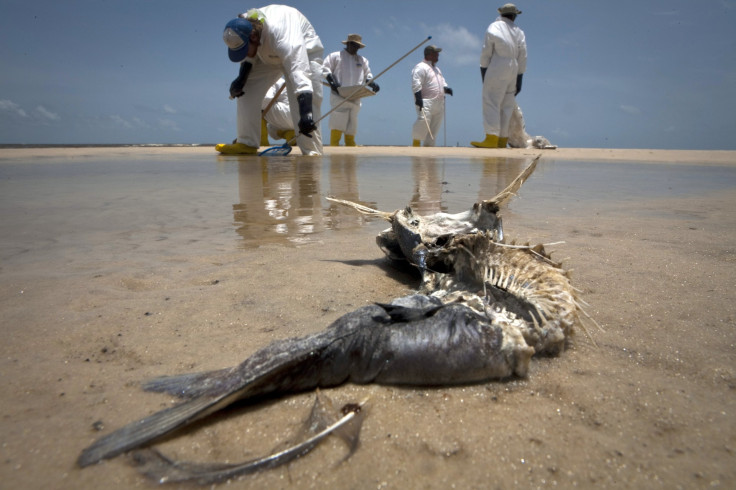BP Deepwater Horizon Spill: UK Government Sends Support For British Oil Giant In US Court Rulings Tied To 2010 Disaster

The U.K. government is throwing its support behind British energy giant BP PLC (NYSE:BP) in U.S. court cases stemming from the 2010 Gulf of Mexico oil disaster. London's lawyers have urged the U.S. Supreme Court to review decisions by lower courts that BP compensate companies affected by the disaster, even if those businesses can’t prove they were directly harmed, according to media reports.
In a friend of court brief, the Cameron government said the courts' decisions to allow such payments will stoke grave international concerns “by undermining confidence in the vigorous and fair resolution of disputes.” The ruling greatly expands BP’s “scope of liability far beyond anything that would seem to be appropriate under our shared common-law traditions or that anyone would reasonably expect,” the lawyers said in the brief filed last week.
A handful of U.S. trade organizations, including the U.S. Chamber of Commerce and the American Petroleum Institute, the oil industry’s main lobbyist, submitted a similar amicus brief.
BP is appealing the terms of a March 2012 claims settlement, which doesn’t require strict proof that the oil disaster caused business losses or damages. The U.S. Fifth Court of Appeals in New Orleans and a Louisiana district court found that BP must stand by its original agreement. The Supreme Court in June ruled that BP must keep making payments during the appeals process.
The Deepwater Horizon oil rig explosion killed 11 workers and caused millions of barrels of oil to gush into the Gulf, causing the biggest offshore oil spill in American history. Fishing and tourism-related businesses, which depend on clean beaches and water, suffered heavily after the incident. The cleanup efforts further disrupted their operations.
BP said it welcomed the court briefs filed by the British government and U.S. trade groups, according to a statement. The oil major has said that, if allowed to stand, the courts’ decisions on claims payments would “fundamentally redefine the prerequisites” of a class-action lawsuit. That, in turn, could make companies more inclined to choose litigation over a class-action settlement, a process that “would delay compensation for true victims.”
BP has so far spent $28 billion on damage claims and cleanup costs, but the courts’ rulings could put it on the hook for hundreds of millions of dollars in additional compensation payments. BP could further be fined up to $18 billion in civil penalties. A U.S. judge last week found the company was “grossly negligent” in the disaster, a legal definition that would quadruple the maximum Clean Water Act penalty that the company could be required to pay.
Update 9/8/2014 12:30 p.m. EDT The first and fourth paragraphs were corrected to reflect the current status of the BP appeals process.
© Copyright IBTimes 2024. All rights reserved.





















